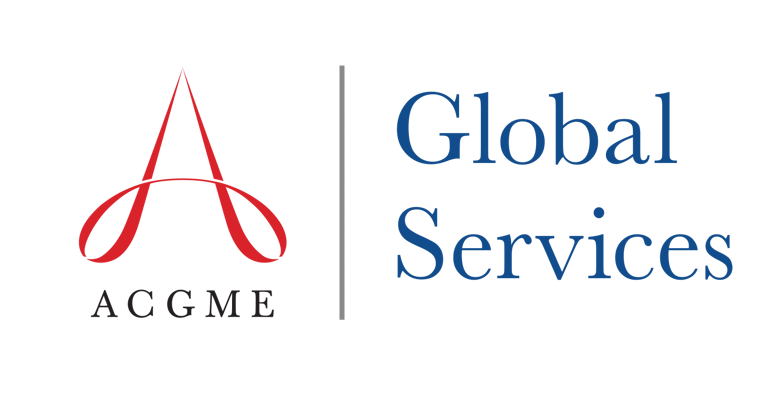The ACGME and Global Health: The Concept of Glocalization in Health Care Provision
ACGME Global Services, a department of the ACGME, was created to advance the ACGME Mission by working with global entities to enhance the quality of resident and fellow physicians' education. Through this series, The ACGME and Global Health seeks to engage the global medical and health care communities in conversations on challenges facing global health that transcends borders.
This post includes input from ACGME and public health leaders from recent interviews and presentations.
In a rapidly interconnected world, local has gone global, and global has gone local. What happens locally is no longer truly local; what affects a locality can now affect the entire world.
In the domain of health care provision and disease prevention, this blurred line has become abundantly evident across different topics, from epidemiologic crises to resource management concerns. Local actors, wittingly or unwittingly, are now global players, with the need to take a global view of challenges and opportunities perceived as exclusively local. These forces are also affecting the domains of undergraduate and post-graduate medical education (PGME).
What is Glocalization in the Health Provision Space?
Discussions in the health care education and provision arenas have shifted from globalization to glocalization – a term that transcends this opaque yet increasingly invisible barrier between the local and global.
Glocalization impacts the sector in numerous ways, each with its assorted benefits and challenges. For instance, a glocalized view of a local epidemiologic crisis is evident by resources invested in preventing its expansion, for fear the local will manifest into the global. By the same token, the lack of an acute local epidemiologic crisis also needs to be managed with the view that the global can quickly turn local.[1] Both scenarios possess real consequence for the education of the next generation of health care practitioners.
A less apparent example is the migration of human and intellectual capital, where acute local needs, augmented by the available capital resources throughout an unbalanced global economy, create a solution in one locality, and exacerbate a brain drain crisis in another, cutting across multiple fault lines in the global movement of human resources. This trend also manifests at a regional level, as evidenced by the significant disparity in these same resources with rural localities in highly developed countries.
Glocalization Viewed from the Global Perspective
For global actors in health provision, glocalization has become a major challenge and an opportunity to address global imbalance in all types of resources, from human to intellectual to material.
One area of glocalization promoted at this level is to achieve consensus on a basic standard of medical education and training, with the overriding goal to promote health care disease prevention and treatment across the globe to mitigate the resource imbalance experienced at the local level worldwide.
Organizations such as the World Federation for Medical Education (WFME) promote such standards, which "address the elements of post-graduate medical education which encompass the totality of all processes and activities offered to facilitate post-graduate doctors' learning, well-being, and achievement, including the management and quality improvement of medical education programs," explained WFME President Ricardo León-Bórquez.
Understanding the need for a glocalized approach, Professor León-Bórquez emphasized that the standards are "developed to ensure that they can be adapted to all contexts and circumstances." ACGME International, a global accreditation organization, follows a similar glocalization philosophy, where established international standards and guidelines are enforced to maintain quality, yet adaptable to harmonize with local needs and cultural traditions.
"One of the goals is to provide some consistency in education and clinical service provision across jurisdictions, because the world is a very small place," explained ACGME President and Chief Executive Officer Thomas J. Nasca, MD, MACP. "It’s inescapable that 50 years from now, currently underdeveloped countries are going to become developed.”
Learning from the Glocalized Space
Sharing this mutual goal, ACGME Global Services recently joined the WFME to conduct a survey to help better understand global PGME regulatory bodies worldwide. Once the entities are identified, the collaborative work on establishing glocalized concepts can move forward.
Although the ultimate goal in the glocalized health space is to be able to provide health care for the local population while managing tangential challenges, "the first part is just recognizing and respecting local expertise by identifying who they are and making sure that we understand what the needs are," said ACGME Chief Financial and Administrative Officer, and Executive Vice President, ACGME Global Services John Ogunkeye, MS. "It’s about partnerships.”
The next entry of this series will discuss glocalization from a regional perspective.
The goal of this content series is to provoke discussion about issues that concern the global PGME community, enabling critical conversation that engages with stakeholders across borders, disciplines, and perspectives. We invite comments by email (global@acgme.org) and through Twitter and LinkedIn (with the hashtag #ACGMEGlobalServices). We also seek external voices in future posts in the ACGME and Global Health Blog series; email us if you would like to participate.
[1] A good example is when COVID-19 reached the relatively isolated Pacific island nation of Tuvalu in May 2022 – more than two years after the global pandemic was declared, also when the country first declared a state of emergency.

